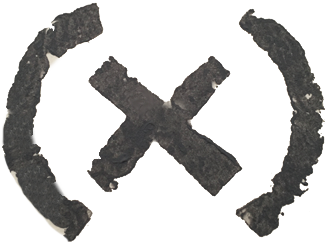Fish
Louis Renard, French
1678-1746
[CR]
History
The first edition of the book was published by Louis Renard in Amsterdam in about 1719. According to the title-page puff, it was almost thirty years in the making. Only 100 copies were produced and it is now extremely rare. The second edition appeared in 1754 under the auspices of the prominent publishers Reinier and Josué Ottens, also of Amsterdam. The firm of Ottens purchased about thirty unbound copies of the first edition from Renard's estate, had the plates coloured, replaced the original undated title-page and added a preface byAernout Vosmaer as well as a 'Declaration' by Renard (suppressed in all but one known copy of the first edition); they then printed some 70 additional copies to make up a second edition. Although less rare than the first edition, a survey by Pietsch found only thirty-four copies of this edition extant internationally. Ours is actually a'hybrid' copy which contains Renard's undated title-page of the first edition but also the preface by Vosmaer which is found only in the second. Two other hybrid copies are known to survive although their existence cannot be fully explained. A third edition was published in 1782 by the house of Abraham von Padenburg and Willem Holtrop. Again, copies of this book are extremely rare, probably because its publication was never completed.
Consisting of two parts - here bound together - Poissons... was one of Renard's most substantial publications. As well as spending some seventeen years as a publisher and bookdealer, Renard (c.1678-1746) also sold medicines, brokered English bonds and, more intriguingly, acted as a spy for the British Crown, being employed by Queen Anne, George I and George II. In this capacity he helped guarantee the Protestant succession to the throne by preventing stores from reaching the 'Old Pretender' James Stuart. These supposedly clandestine activities were not particularly secret. In fact, Renard used his status as an 'agent' to help advertise his books. This particular work is actually dedicated to George I while the title-page describes the publisher as'Louis Renard, Agent de Sa Majesté Britannique'. University of Glasgow




